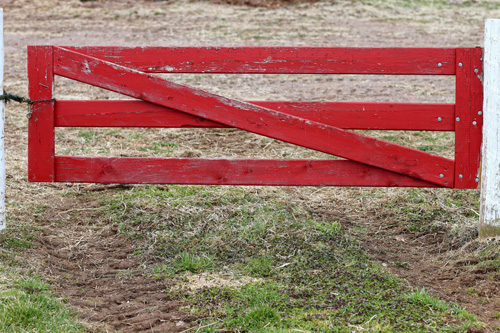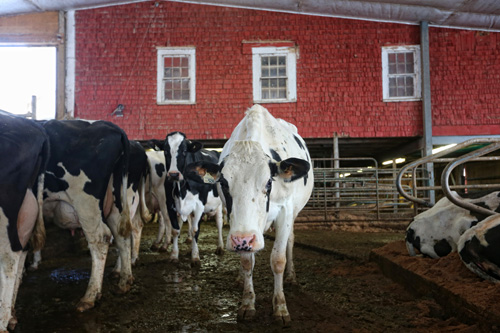News
» Go to news mainDalhousie University Faculty of Agriculture opens farm family communication lines with Elaine Froese
Farming with family isn’t easy and too often, succession planning is a topic that is not addressed. Expectations and clarification go unheard. Communication can break down.
The Dalhousie Agricultural Students’ Association and Extended Learning have partnered to open the lines of communication on this important topic. Together, these groups will host Elaine Froese November 5th and 6th on the Agricultural Campus. A renowned farm family coach, author, motivational speaker and farmer, Froese has worked in the business of coaching farm families for over 30 years.
“Extended Learning has always been a proponent of training that helps to move the agricultural industry forward,” says Jolene MacEachern, who was a Program Manager in Extended Learning until her recent transition to a position more focused on entrepreneurship support, Agricultural Sandbox Manager “There are great benefits to bringing industry and students together to partner on training opportunities that bring someone of Elaine’s caliber to campus. These are issues facing all generations in business and it directly affects their potential to be successful.”

Froese grew up on a farm and married a grain farmer. She and her family now farm in Manitoba. Froese is certified as a conflict resolution specialist and mediator, as well as a Hudson Institute Coach. She has published three books and is a columnist for Grainews and Progressive Dairyman.
“I see a huge need for families to learn how to do conflict well and have courageous conversations for growth,” explained Froese. “Fear of conflict, fear of loss of wealth and fear of loss of control or identity are keeping farm families stuck. Learning tools to communicate your expectations, share intent and ask for what you need is powerful.”
Froese will be on campus November 5th and 6th. Students will be offered a presentation from 3-5 pm on November 5th, followed by an in-depth workshop later that evening. On November 6th, farmers and the general public are invited to attend a free morning presentation, followed by an afternoon workshop.
Topics to be covered include succession planning tools, how to create consensus around agreements, how to clearly convey expectations, business succession, “The In-Law Factor” and more.
For students, communicating with older family members such as parents can be difficult. Elaine will focus on how to have tough conversations, how to address conflict management and how to have meaningful conversations.
“Agriculture students need tools to stop avoiding conflict and have conversations that matter with their peers, their families and their employers,” said Froese.
Dairy Business Management student Sheldon Cameron agrees. “With the average age of farm owners going up every year, farm family communication is an issue. It is time for the younger generation to step in, but the question is how? I hope students gain the confidence and positive attitude needed to enter the agriculture industry from this presentation.”
For second year Dairy Business Management student, sixth generation dairy farmer and vegetable producer Josh Tannahill, addressing the issues of succession planning and farm family communication is critical.
“From a student and farmer perspective, I think it is great that Dal-AC is highlighting the issues involved with family farms. It is rare to find a farm in the Maritimes that is not family-operated and coming from a family farm myself, I know that having that ‘conversation with dad’ can be hard to plan and conduct,” shared Tannahill. “Succession planning is a very important part to a farm business because it is essentially deciding the future of the business.”
Tannahill understands that conflict arises on family farms, but is hopeful the Elaine Froese sessions will address key issues. “Although conflict is not avoidable, it can be well-managed and used constructively. There will always be conflicts on family farms because every generation will be farming differently than the prior. With all of the technological advancements it is becoming more difficult to bridge the gap between generations,” said Tannahill.
Froese hopes both students and producers walk away from this event with the ability to share expectations and understand the impact of actions on others in the family business as well as tools to help initiate discussions on tough issues in a more productive manner.

Jolene and her husband Lauchie were given an incredible and rare opportunity. They moved to Debert, NS and for over six years worked along-side Henry and Janet Eisses before taking over the Eisses’ 300 acre operation. The MacEachern and Eisses families worked together to transition the property. The MacEachern’s officially took ownership January 1, 2013. Today, Lauchie and Jolene, along with their three young children, Ewan (seven), Allister (five) and Adriana (three), operate Folly River Farms Limited in Debert, NS. They milk 60 cows, crop corn, barley, soybean, clover and alfalfa and rent-out land for carrot production.
“I hope people start to realize what modern agriculture and farming is…a 21st century business that requires substantial knowledge, skills, commitment and passion in order to succeed in what is now a globally competitive business,” explains Dr. David Gray, Dean Faculty of Agriculture and Principal Dalhousie Agricultural Campus. “I hope people go home from our sessions with a new understanding of what it means to be a modern farmer and with a new found empathy for what those who choose this as their career, their lifestyle - sacrifice and deal with on a daily basis. No matter how you look at it, agriculture is our future…as a community, as a nation, as a species! Therefore we all have a vested interest in ensuring that it succeeds…and in order to succeed succession is crucial.”

This event is being made possible by the generous support of numerous stakeholders investing in the success of agriculture- including the Class of ’44 Lecture Series. This speaker fund was set up by the Class of 1944 to support bringing in leading experts in emerging agricultural issues. Partnering headline sponsors also include FCC, Patterson Law and PriceWaterhouseCooper.
For more information on registration, please visit www.dal.ca.exl or contact Extended Learning at (902) 893-6666. For the student session, the $5 workshop fee can be paid in the Students’ Association lounge (Cox 32).
Recent News
- Celebrating research in Agriculture during Lifting Nova Scotia
- Truro Start program just the right fit
- Convocation Reception ‑ Please join us to celebrate the Class of 2024!
- Dal's FREE Ocean Community Day – May 11
- Web Content Specialist ‑ Matt Goodman
- Two Programs, One big change
- Agricultural Campus Bookstore Summer Closure
- Undergraduate Advising Survey Invitation
